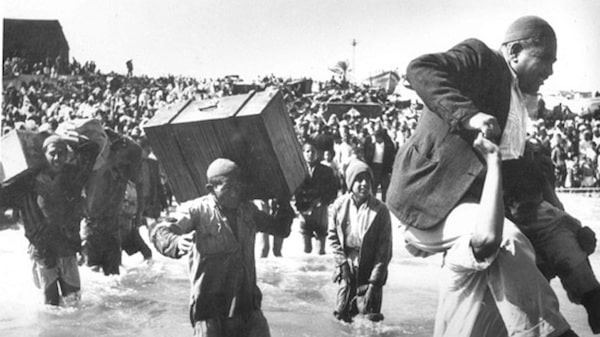Today’s Israel is built over the ruins of hundreds of Palestinian villages which were destroyed by Zionist militias during Israel’s formation in 1948, said professor and historian Ilan Pepe. He emphasized that the expulsion of hundreds of thousands of Palestinians from their lands and homes was nothing but ethnic cleansing carried out by Israeli armed forces.
Professor Pepe was speaking during an online event called “75 years of Nakba, 75 years of people’s resistance,” organized by the International People’s Assembly (IPA) on Wednesday, May 10, ahead of the Palestinian Nakba Day which is commemorated annually on May 15.
Thousands of Palestinians were killed and hundreds of thousands (according to some estimates around 750,000 to 800,000) were forcefully expelled by Israeli forces from their lands and villages inside the historic Palestine during the months leading up to Israel’s creation in 1948. Each year, Palestinians commemorate their forceful expulsion and dispossession as the Nakba, or the “great catastrophe” in Arabic.
Apart from Professor Pepe, Bassam al-Salhi, a member of the executive committee of the Palestinian Liberation Organization (PLO), Palestinian journalist Mariam Barghouti, and Mehdi Salhi from the Belgium Workers Party also spoke during the event moderated by Georgia Gusciglio of IPA Belgium.
The occupation is unleashing Nakba every day
All the speakers underlined the fact that Nakba was not a one-time event and that Palestinians continue to face Israeli oppression, atrocities, discrimination, killings, and forceful displacement on a daily basis.
Pepe pointed out that contrary to common understanding, even in 1948, the Nakba was not a brief event but, as now established by professional historians, went on for months between November 1947 and December 1948. He claimed that during these months, more than half of all Palestinian villages in historical Palestine were demolished (530 villages) and nearly half of the Palestinian population was forced to become refugees.
Pepe claimed that with the collaboration of the colonial powers at the time, Zionists were able to undertake this ethnic cleansing of Palestinians in order to establish the “facts on the ground” to legitimize their occupation of the land. He categorically refuted Israeli claims that Palestinians were asked to leave their homes by the Arab armies, who were in fact trying to defend the Palestinian land from Israeli aggression.
Now, “the only possible way of rectifying the past evil is by respecting Palestinian refugees’ right to return and by the establishment of a state all over the historical Palestine based on the principles of democracy, equality and social justice built through the process of restitutive justice which compensates the people who have lost land, careers, and lives,” Pepe emphasized.
Palestinian resistance has never ceased
Agreeing with Pepe, Bassam Salhi said that Palestinians “continue to fight against the apartheid Zionist system on a day-to-day basis and a third intifada is already building up” in the occupied territories. However, he also emphasized the need to promote international solidarity movements such as Boycott, Divestment and Sanctions (BDS) to build greater popular pressure on the occupation.
Mariam Barghouti, who was unable to attend the event, sent her views in writing which were read by Gusciglio. She reiterated that the Nakba neither started nor ended on May 15, 1948. The date is remembered because on this day, the massacre and bloodbath of Palestinians was institutionalized by the creation of Israel. She pointed out that Israel still continues to massacre Palestinians because the world community is silent and the Palestinians are termed as “terrorists.”
Noting that it has been a year since senior Al-Jazeera journalist Shireen Abu Akleh was killed by Israeli forces and no one has been held guilty for the crime yet, and that Gaza is being bombed again—as in the last several years with scores of innocent civilians killed—Barghouti questioned the logic of peace as propagated by the West, which asks Palestinians to make peace with the entity that has killed and massacred their family members.
Mehdi Salihi spoke on the growing strength of Palestinian solidarity movements in Europe. He highlighted that due to growing engagements with larger working class sections across Europe, a new solidarity with Palestinians is emerging. He cited examples of how public campaigns have led to city councils in Barcelona in Spain and Liege in Belgium, among others, taking proactive positions in support of Palestine and against Israeli apartheid.
All speakers noted the need to expand movements like BDS which are facing greater challenges due to the weaponization of anti-Semitism as well as anti-BDS legislation in several countries. They also acknowledged the growing significance of anti-apartheid committees across the globe.

